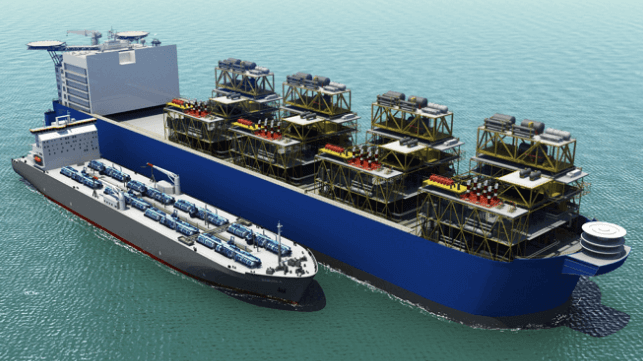Core Power, MIT Win Grant to Study Floating Nuclear Power Stations

UK-based startup Core Power has secured a three-year grant from the U.S. Department of Energy for research into the idea of floating offshore nuclear power generation.
The floating nuclear powerplant concept is different from nuclear propulsion, a naval technology which has never quite taken off in civilian applications. Floating nuclear powerplants would function more like FSRUs: permanently-moored installations for producing green hydrogen fuel, safely and far from population centers.
Working together with the MIT Energy Initiative and the Idaho National Laboratory, Core Power will investigate the development of floating nuclear powerplants off the coast of the United States. The DOE grant will support research on the economic and environmental benefits of floating nuclear power, as well as a technical deep dive into what it would take to build, operate, maintain and decommission the plants.
"We believe this will help us take the next step in bringing ground-breaking new nuclear technology to the maritime market,” said Mikal Bøe, Chairman and CEO of UK-based Core Power. "“This NEUP project will among other things look at how a nuclear-powered H2Hub off the coast of the US could set the scene and demonstrate how we make hydrogen production, safe, cheap and reliable by placing the production unit offshore."
The research will run in parallel to proof-of-concept prototype molten salt reactors currently being developed in the US at the Idaho National Laboratory, with backing from DOE, Southern Company and TerraPower.

that matters most
Get the latest maritime news delivered to your inbox daily.
The use of nuclear power on ships stretches back decades, and nuclear powerplants were installed on vessels before they were installed on shore. Nuclear propulsion has been in continuous (military) use for 70 years. It has limited civilian applications as well, primarily in Russia. Rosatom recently built and deployed a floating 70 MWe nuclear powerplant for the port of Pekev, which supplies the town with both electricity and hot water.
By building a powerplant on a permanently-moored offshore installation, then using its electrical power to produce non-nuclear fuels, the cost and scale advantages of nuclear could be harnessed without the site-selection and permitting challenges of shoreside construction, according to energy consultancy EPRI.
